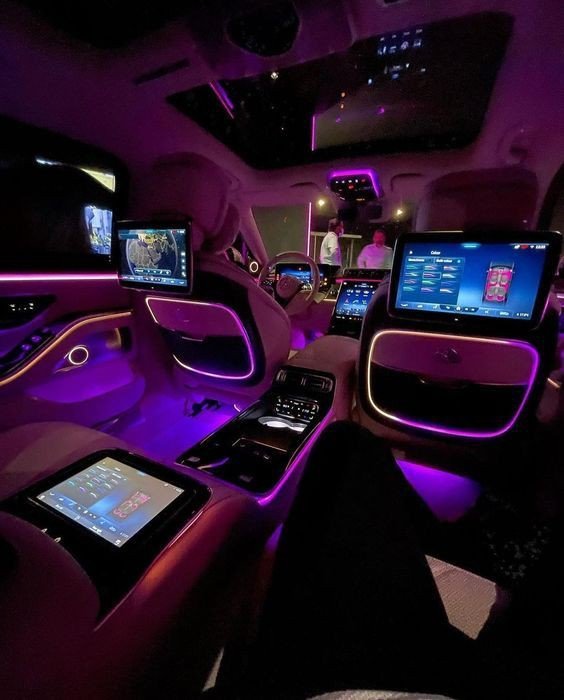
The race to develop autonomous vehicles is one of the most exciting and transformative trends in the automotive and technology industries. Companies across the globe are investing heavily in autonomous driving technologies to create vehicles that can drive themselves with minimal or no human intervention. These vehicles rely on a combination of artificial intelligence, machine learning, sensors, and high-performance computing to navigate complex environments. As we move closer to a future of fully autonomous vehicles, here are the top 10 companies leading the charge in 2024.
1. Waymo
Why It’s a Top Pick:
Waymo, a subsidiary of Alphabet Inc. (Google’s parent company), is widely regarded as a leader in the autonomous driving industry. With over a decade of experience, Waymo has logged millions of miles on public roads and billions of miles in simulation. The company operates a fully autonomous ride-hailing service, Waymo One, in select areas.
Key Achievements:
- Extensive Testing: Over 20 million miles of real-world driving and 20 billion miles in simulation.
- Waymo Driver: Their self-driving technology platform, which integrates AI, machine learning, and an array of sensors.
- Partnerships: Collaborations with automakers like Stellantis, Jaguar Land Rover, and Volvo to integrate its technology into commercial vehicles.
Why It’s Important:
Waymo’s deep experience, extensive testing data, and robust technology stack make it a front-runner in the quest to achieve full autonomy. Its deployment of an autonomous ride-hailing service is a significant step toward mainstream adoption.
2. Tesla
Why It’s a Top Pick:
Tesla is one of the most recognizable names in the autonomous driving space, thanks to its fleet of electric vehicles equipped with Autopilot and Full Self-Driving (FSD) capabilities. Tesla takes a unique approach by leveraging its massive fleet data and over-the-air updates to continuously improve its self-driving software.
Key Achievements:
- Autopilot and FSD: Advanced driver-assistance features that enable lane centering, adaptive cruise control, and more.
- Data Advantage: Millions of Tesla vehicles on the road provide valuable data to improve its AI algorithms.
- Dojo Supercomputer: A dedicated AI training system designed to process vast amounts of video data from Tesla’s fleet.
Why It’s Important:
Tesla’s strategy of using real-world data from its large customer base to train its AI models is a major differentiator. Its vehicles are already equipped with the hardware necessary for full autonomy, which Tesla plans to unlock via software updates.
3. Cruise
Why It’s a Top Pick:
Cruise, a subsidiary of General Motors (GM), is focused on building fully autonomous electric vehicles for urban environments. The company has received approval to operate its autonomous ride-hailing service in San Francisco, making it one of the few companies to offer fully driverless rides in a major city.
Key Achievements:
- Autonomous Fleet: A fleet of electric vehicles designed specifically for autonomous driving, including the Cruise Origin.
- Regulatory Milestones: Approved to offer driverless rides in San Francisco without a safety driver.
- Strategic Partnerships: Collaborations with Honda, Microsoft, and Walmart to accelerate the deployment of autonomous technology.
Why It’s Important:
Cruise’s ability to operate a driverless ride-hailing service in a challenging urban environment like San Francisco demonstrates its technological capabilities and regulatory progress. Its partnerships with major companies further strengthen its position in the market.
4. Aurora Innovation
Why It’s a Top Pick:
Aurora Innovation is a well-funded startup founded by former leaders from Google, Tesla, and Uber’s self-driving units. The company focuses on developing a flexible autonomous driving platform, the Aurora Driver, which is designed to work across multiple vehicle types, including passenger cars, trucks, and delivery vehicles.
Key Achievements:
- Aurora Driver: A self-driving platform designed for flexibility and scalability across different vehicle types.
- High-Profile Partnerships: Collaborations with companies like PACCAR, Volvo, and Toyota to bring autonomous trucks and passenger vehicles to market.
- Public Listing: Aurora went public through a SPAC merger in 2021, raising substantial capital for its development efforts.
Why It’s Important:
Aurora’s focus on creating a versatile platform for both passenger and commercial vehicles positions it well to address multiple market segments. Its strategic partnerships with leading automakers and logistics companies strengthen its potential for widespread deployment.
5. Argo AI
Why It’s a Top Pick:
Argo AI, backed by Ford and Volkswagen, is developing a comprehensive self-driving technology stack for ride-hailing and delivery services. With significant investment from its parent companies, Argo AI has been testing its technology in multiple cities across the United States and Europe.
Key Achievements:
- Argo Self-Driving System: A complete hardware and software solution for autonomous driving.
- Multi-City Testing: Extensive testing in cities like Miami, Austin, Munich, and Pittsburgh.
- Strategic Partnerships: Joint ventures with Ford and Volkswagen to develop autonomous ride-hailing and delivery services.
Why It’s Important:
Argo AI’s backing by two major global automakers provides it with significant resources and access to a broad customer base. Its focus on both ride-hailing and delivery services enables it to tap into multiple revenue streams.
6. Baidu Apollo
Why It’s a Top Pick:
Baidu, often referred to as the “Google of China,” has been investing heavily in autonomous driving through its Apollo platform. Baidu Apollo offers a comprehensive suite of software, hardware, and cloud-based solutions for autonomous vehicles and has been actively testing its technology in China.
Key Achievements:
- Apollo Go: A fully autonomous ride-hailing service currently operating in multiple Chinese cities, including Beijing and Shanghai.
- Open-Source Platform: Baidu has made parts of its Apollo platform open-source, fostering a collaborative ecosystem for autonomous driving development.
- Partnerships: Collaborations with automakers like Geely, WM Motor, and BYD to integrate Apollo’s technology into their vehicles.
Why It’s Important:
Baidu’s significant investment in R&D, its large-scale testing operations in China, and its open-source strategy position it as a major player in the global autonomous driving market.
7. Motional
Why It’s a Top Pick:
Motional is a joint venture between Hyundai Motor Group and Aptiv, focused on developing and commercializing SAE Level 4 autonomous vehicles for ride-hailing services. Motional has partnered with major ride-hailing companies like Lyft to deploy its autonomous vehicles.
Key Achievements:
- Lyft Partnership: Plans to launch a fully driverless ride-hailing service in multiple cities by 2023.
- Testing Milestones: Extensive testing in cities like Las Vegas, Boston, and Pittsburgh.
- Autonomous Technology Platform: Combines Hyundai’s automotive manufacturing expertise with Aptiv’s autonomous driving technology.
Why It’s Important:
Motional’s collaboration with Lyft and other major players provides it with a clear path to commercialization. Its focus on ride-hailing services could make autonomous vehicles more accessible to the public.
8. Zoox
Why It’s a Top Pick:
Zoox, acquired by Amazon in 2020, is developing a purpose-built, fully autonomous vehicle for ride-hailing services. Unlike other companies retrofitting existing vehicles, Zoox is designing its vehicle from the ground up to be fully autonomous, with no steering wheel or driver’s seat.
Key Achievements:
- Custom Vehicle Design: Developing a unique bi-directional, fully autonomous vehicle optimized for urban environments.
- Amazon Backing: Strong financial support from Amazon, which may leverage Zoox’s technology for logistics and delivery services.
- Successful Testing: Extensive testing in San Francisco and Las Vegas.
Why It’s Important:
Zoox’s ground-up approach to vehicle design allows for greater optimization for autonomy. Its integration with Amazon’s logistics network could also provide a unique advantage in delivery and mobility services.
9. Mobileye
Why It’s a Top Pick:
Mobileye, an Intel company, specializes in developing computer vision technology for autonomous vehicles. It supplies advanced driver-assistance systems (ADAS) to many automakers and is now moving toward full autonomy with its Mobileye Drive platform.
Key Achievements:
- ADAS Leader: Provides vision-based driver-assistance technology to over 25 global automakers.
- Mobileye Drive: A full-stack self-driving solution combining cameras, radar, and LiDAR with proprietary AI software.
- Robotaxi Operations: Plans to deploy autonomous robotaxi services in Munich and Tel Aviv.
Why It’s Important:
Mobileye’s extensive experience in computer vision and ADAS, combined with Intel’s resources, makes it a strong contender in the autonomous driving space. Its partnerships with major automakers ensure a broad deployment of its technology.
10. Pony.ai
Why It’s a Top Pick:
Pony.ai is a startup focused on developing self-driving technology for both passenger and commercial vehicles. Founded by former leaders from Baidu’s and Google’s autonomous driving teams, Pony.ai has been testing its technology in China and the United States.
Key Achievements:
- Public Road Testing: Extensive testing in cities like Guangzhou, Beijing, and Fremont, California.
- Autonomous Freight: Partnerships with logistics companies like S.F. Express to deploy autonomous trucks.
- Funding: Raised significant funding from investors like Toyota, which has boosted its valuation and expanded its development efforts.
Why It’s Important:
Pony.ai’s experience in both the U.S. and China, combined with its focus on both passenger vehicles and autonomous trucking, positions it well for growth in multiple markets.
Conclusion
The autonomous driving industry is filled with diverse players, from established giants like Tesla and Waymo to innovative startups like Aurora and Zoox. Each company brings unique strengths, whether it’s Waymo’s vast testing data, Tesla’s real-world data strategy, or Baidu’s open-source platform. As these companies continue to innovate and scale their technologies, they are driving us closer to a future where autonomous vehicles are a part of everyday life. Keeping an eye on these top 10 companies will help you stay informed about the latest advancements in this exciting field.







